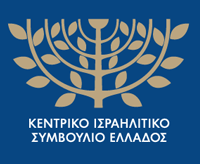ISRAELI COMMUNITY OF KARDITSA
In the late 18th and early 19th centuries, rivalries between Jews and Christians in Trikala led to anti-Jewish incidents as a result of which some Jewish families settled in the neighboring town of Karditsa.
The first family to settle was that of Geudas Capetas, while others soon followed, resulting in the creation of a community of 1940 people in 82. The Jews of Karditsa were basically engaged in trade, some were lamp makers and spinners, while some of the women were embroiderers and seamstresses.
In the city there was no Synagogue, no cemetery and no rabbi. The necessary religious duties were performed by Joseph Joseph, who was noted for his education. During the major holidays, the Jews of Karditsa went to the Synagogue of Trikala to watch the service, while at Easter the families gathered in relatives' houses to observe the ancestral customs and traditions.
During the War of 1940, 6 young men were recruited, of whom Mimis Kapetas was injured in the battles with the Italians. During the period of the Occupation, many participated in the National Resistance. With the collapse of Italy in September 1943, the city was occupied by the Germans and one of their first actions was to ask the City Hall for a list of Jews with their addresses. The National Resistance had provided the Jews with fake identity cards bearing Christian names.
When the persecution began most of them were able to escape to the mountains of Agrafa and especially to the village of "Mastrogianni", where they found safe shelter and hospitality. This is how all the Jews of Karditsa, who returned to the city after the War, were saved. The community faced many financial problems while the health of the children, due to deprivation and hardship, was in a bad state. A Committee was then set up, chaired by Professor David Bonfil and members Leo Gani and Leo Capeta, which in collaboration with the Central Jewish Council of Greece was able to secure immediate financial assistance.
By Royal Decree of 6.7.1949, the Community was officially recognized, acquiring the status of a Legal Person under Public Law, with Zakinos Capeta as president. Over the years the number of members began to decrease due to their immigrating to Israel or settling in other larger cities.
In 1970 the Community - due to the small number of members - was declared dormant and ceased to exist. Today, only Haim Capeta's family remains in Karditsa.

